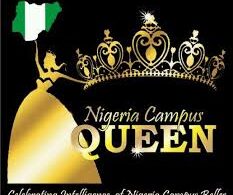A Nigerian scholar Dr. Abdulrazak Ibrahim has invented an insect control technology that is safeguarding farmers’ crops in Brazil.
Ibrahim’s groundbreaking invention, developed in partnership with Brazilian counterparts, has garnered international recognition for its significant impact on agricultural productivity and food security.
Inspired by the pioneering work of Obafemi Awolowo University‘s Professor Funso Sonaiya, Ibrahim embarked on a journey into the realms of science, technology, and innovation. His passion for harnessing cutting-edge solutions to address agricultural challenges led him to co-lead an African-Brazil project that resulted in the establishment of the first-ever biolistic facility in Northern Nigeria. This state-of-the-art facility represents a milestone in genetic engineering and biotechnology research in the region, providing a platform for transformative advancements in crop protection and improvement.
The culmination of Ibrahim’s efforts is his invention of an innovative insect control technology, which he successfully patented with deposits at the Brazilian Industrial Property Organization. This groundbreaking solution has revolutionized pest management practices in Brazil, effectively shielding farmers’ crops from devastating insect infestations. By preventing crop wastage and safeguarding yields, Ibrahim’s invention has played a pivotal role in bolstering Brazil’s agricultural resilience and mitigating the risk of food insecurity.
The significance of Ibrahim’s invention extends beyond the borders of Brazil, as it holds immense potential for addressing similar challenges in Nigeria and other regions grappling with agricultural pests. With over 20 years of experience in agricultural biotechnology and research, Ibrahim brings a wealth of expertise to his work within Africa’s National Agricultural Research and Innovation System (NARIS), South America, and the Tropical Agriculture Platform (TAP) framework.
Educated at prestigious institutions such as the Universidade de Brasilia (UnB) and the Universidade Federal do Ceara (UFC) in Brazil, Ibrahim holds a Ph.D. in Molecular Biology and a master’s degree in Biochemistry. His academic journey, rooted in a bachelor’s degree in Biochemistry from Bayero University, Kano, Nigeria, has equipped him with the knowledge and skills necessary to spearhead transformative agricultural research and development initiatives.
Ibrahim’s areas of expertise encompass capacity development, agricultural innovation systems, food systems approach, plant biotechnology stewardship, stakeholder engagement, and the development of transgenic crops. With a keen focus on biosafety and foresight, he remains committed to leveraging science and technology to address pressing agricultural challenges and drive sustainable development outcomes.
As Ibrahim continues to make strides in advancing agricultural biotechnology and innovation, his work serves as a source of inspiration and pride for Nigerians and the broader African scientific community. His dedication to harnessing scientific knowledge for the betterment of society underscores the transformative potential of indigenous expertise and international collaboration in tackling global challenges.
In conclusion, Dr. Abdulrazak Ibrahim’s invention of an insect control technology represents a testament to the power of innovation and collaboration in addressing complex agricultural issues. By harnessing the potential of biotechnology, Ibrahim has made a profound impact on agricultural sustainability and food security, leaving a lasting legacy of scientific excellence and societal impact.









Join our Channel...